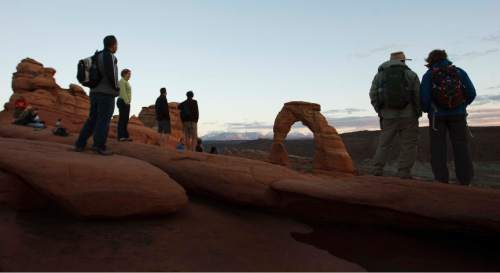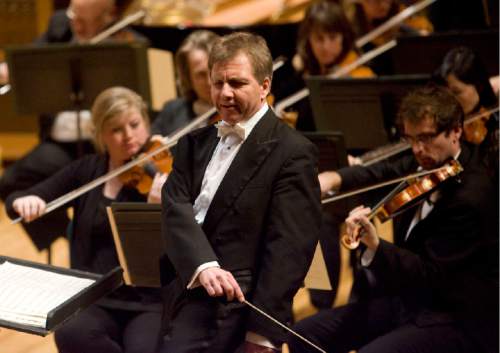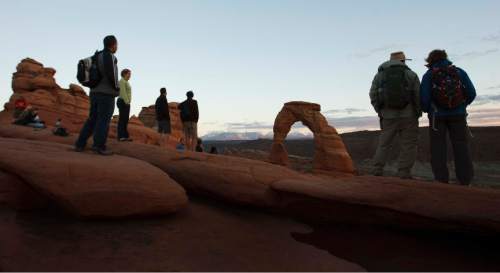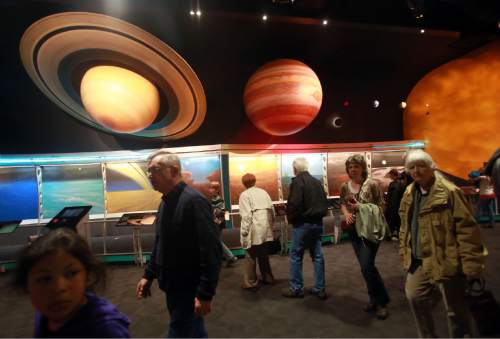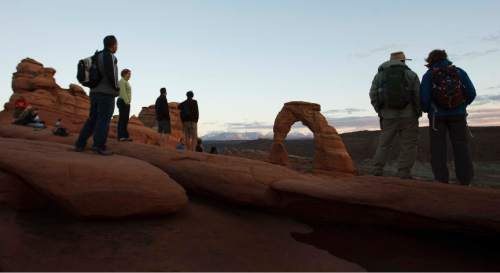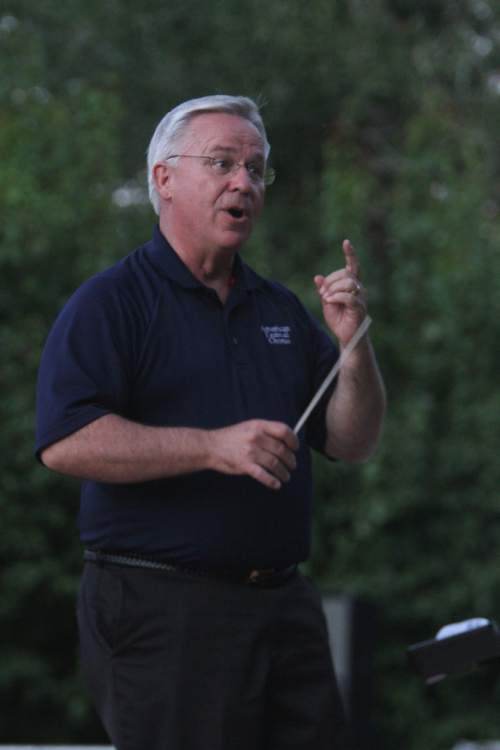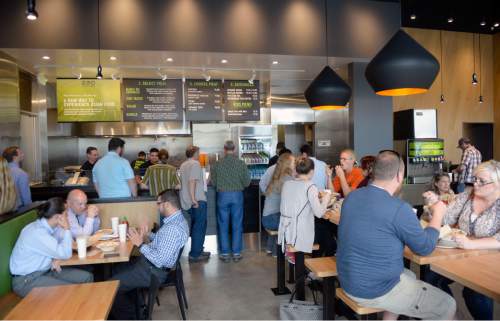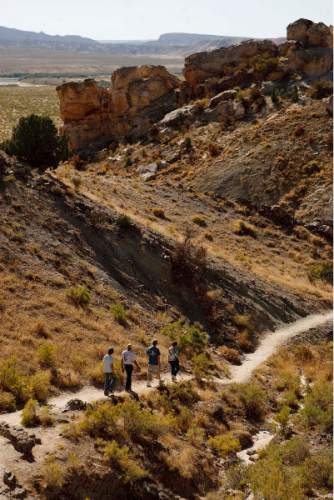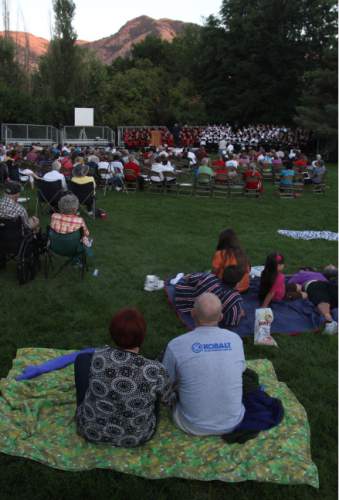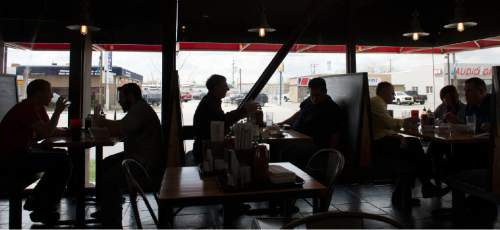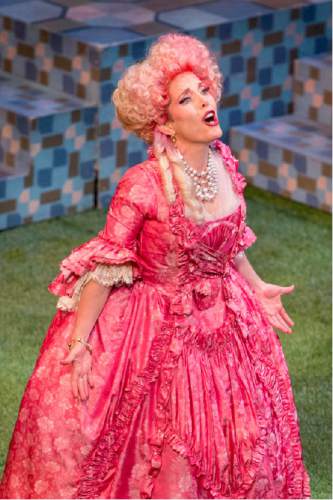This is an archived article that was published on sltrib.com in 2015, and information in the article may be outdated. It is provided only for personal research purposes and may not be reprinted.
It's become an annual tradition at the Legislature: Performing-arts groups, museums and convention hosts flock to the Capitol, hat in hand, seeking taxpayer help — sometimes a little, sometimes a lot — promising big economic-development benefits.
And so it was that roughly three dozen groups paraded before the Legislature's Business, Economic Development and Labor Budget Committee this week, asking for a quarter of a billion dollars in funding for pet projects.
"It's laughable to be in a supposedly conservative state where the constitution of our state actually requires a free market and then to see the Legislature lining up organizations to feed at the taxpayer trough," said Connor Boyack, president of the Libertas Institute, a libertarian think tank.
As the economy improves, more and more groups have been coming to the Legislature with funding requests. Last year, the various groups asked for a total of $227 million; this year they have already lined up asking for $241 million.
Not all of them will get funded, but a number will.
Members of the committee will rank their top priorities and the highest-scoring programs will go to the top of the funding list. Legislative leaders will decide near the end of the session how many of those on the list end up getting money from the state.
The Big Outdoor Expo, for example, is asking lawmakers for $150,000 to stage a fair in Utah County to promote outdoor tourism around the state.
Hale Centre Theatre says it needs $100,000 to pay actors in the troupe's productions. The Centerpoint Legacy Theatre in Centerville is looking for $182,000 and the Tuacahn Ampitheatre in southern Utah wants $500,000, both wanting to expand.
Sen. Curt Bramble, R-Provo, questioned why Tuacahn, which boasts booming attendance and numerous sold-out performances, needs taxpayer help to pay for more seating.
"If you're sold out every night, standing room only, why not raise ticket prices?" Bramble asked. Jonathan Hafen, chairman of the board of Tuacahn, said officials are trying to avoid pricing out their customers.
"So you're saying folks buying tickets are complaining about prices, so they're petitioning the government so they don't have to have higher ticket prices?"
But Bramble had his own item on the committee's menu — a request for $250,000 for the "Let's Eat Out" ad campaign by the Utah Restaurant Association reminding people to dine at Utah restaurants.
The American Festival Chorus in Logan is asking for $100,000 to help with marketing and the Utah Symphony and Opera is looking for $300,000 to promote the symphony worldwide and pay costs associated with recording a scored documentary on Utah's national parks.
The Utah Film Commission needs $300,000 to help develop digital filmmaking in the state. The Utah Aviation Hall of Fame wants $140,000 to relocate its current displays and build new ones commemorating noted Utah aviators.
Rep. Jeremy Peterson, R-Ogden, who sells real estate in the area, is asking for $2.5 million for state grants of about $20,000 each for homeowners to renovate houses that have been subdivided into units and return them to single-family homes.
"Fundamentally we need to ask ourselves whether we elect these people to safeguard our liberty or to become investment brokers with taxpayer dollars to increase the state's tax base," Boyack said.
Some entities appear before the committee each year. Clark Planetarium, Hale Centre Theatre and the Hill Air Force Base Air Show are all regulars before the committee. Organizers of the air show, which draws 550,000 people to Hill every other year and generates $40 million in economic impact, were requesting $150,000 to help sign acts for the 2016 show.
Some of the bigger items included Sen. Jerry Stevenson's request for $1.9 million to help companies — launched at universities and in basements — make the jump from startup to market. Rep. Dixon Pitcher, the co-chairman of the committee, is asking for $3 million to try to build a cluster of services to support the composite industry, which is important to Hill Air Force Base. And Majority Whip Francis Gibson, R-Mapleton, is asking for $10 million to provide incentives to attract television productions to the state.
The committee hearing was a series of rapid-fire presentations, each scheduled for five minutes or less. Nonetheless, the committee dragged on for 3 ½ hours and would have gone longer if several legislators hadn't had scheduling conflicts.
Twitter: @RobertGehrke


